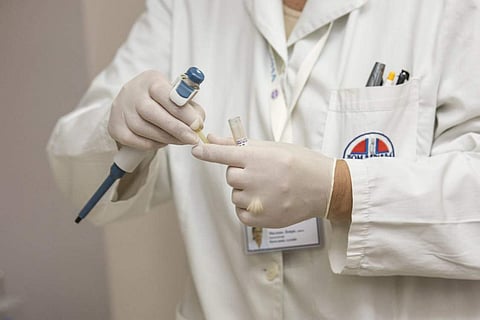

WASHINGTON D.C.,: A team of researchers have developed a simple urine test to more accurately predict the recurrence of bladder cancer.
Researchers from the University Hospital of Lyon in France tested the urine sample of 348 bladder cancer patients for a faulty protein called TERT, and this was able to predict when the cancer was about to return in more than 80 percent of the patients.
Usually, the standard method, called cytology, detected the return in only 34 percent of the patients.
The new test detected bladder cancer that had not spread to the muscle wall, earlier than cytology, that potentially helped doctors to start treatment sooner and before symptoms appear.
A researcher Alain Ruffion said, “The standard cytology test needs a doctor to look down a microscope to read the results, but the TERT test is read by a machine which is simpler, more accurate and available to use straightaway.”
“While the TERT test costs slightly more than standard cytology, it is likely to become cheaper over time,” Ruffion added.
The fact that the test does not react to urinary tract infections is very interesting because it shows that it is robust and unlikely to give misleading results, the researchers stated.
The discovery also suggests that further research is needed to understand more about the role TERT faults play in bladder cancer.
Senior science information manager Anna Perman at Cancer Research UK said, “This promising study suggests a new and more accurate early warning system to detect whether bladder cancers are likely to return. Larger trials are now needed to see if this information could help more people survive by catching bladder cancer's return at its earliest stage.”
The research is published in the British Journal of Cancer.